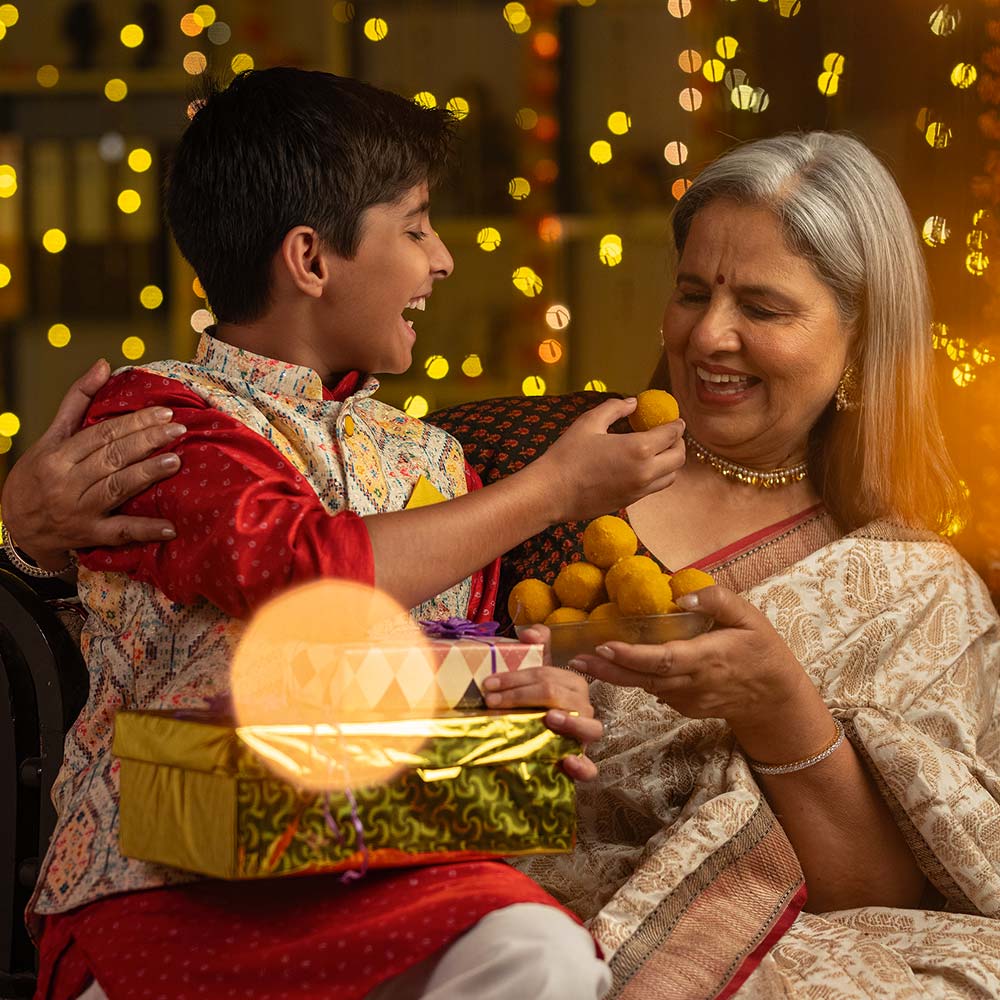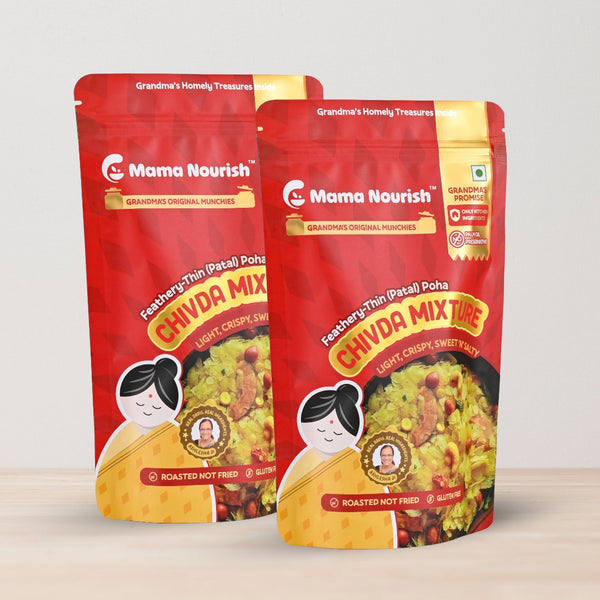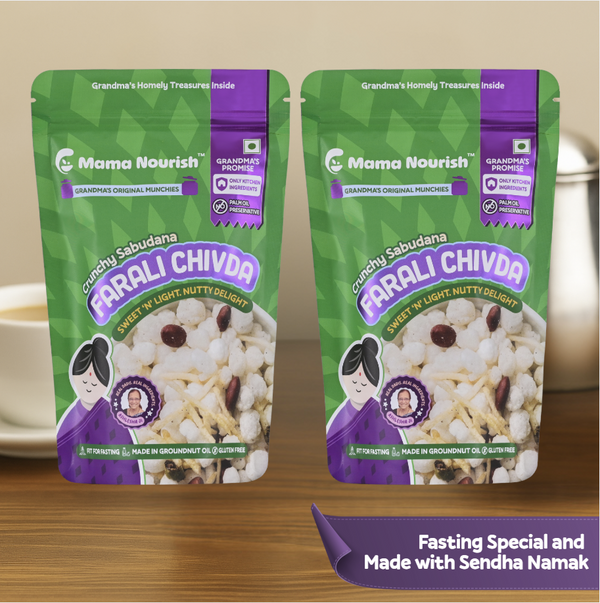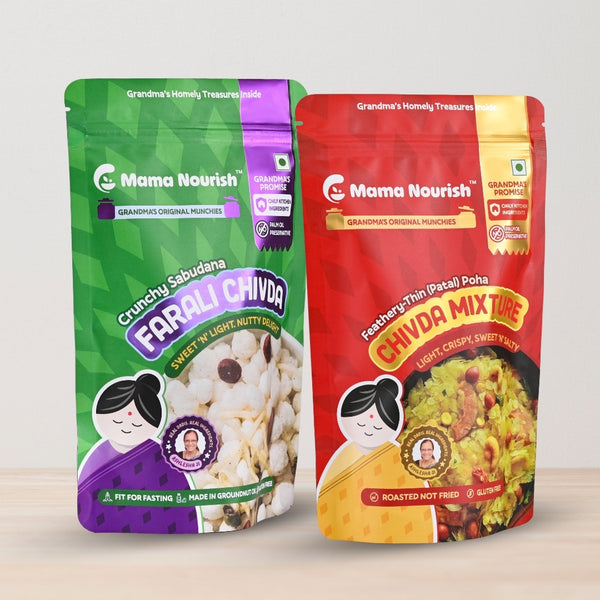
Gifts That Matter: Rediscovering the Art of Thoughtful Gifting
When was the last time you brought a surprise gift to someone? What was it? Something delicious? Well, we all love gifts; they bring loads of happiness wrapped in love and care. People around the globe see gifting as one of the most powerful ways to express love, care and gratitude.
What may have begun from cooking one's favourite nourishing dessert for gifting has today translated into a habit. Arguably, sweets would be the most gifted items in the world.
We love gifting sweets during special occasions like birthdays, anniversary celebrations, weddings, baby showers, and the list goes on. Not only on special events but also during festivals, gifting sweets is an integral part of our tradition.
Remember craving for sweet ladoos during Diwali? But the gifting of sweets is not just for special occasions and festivals. We also love buying chocolates and candies as gifts while returning home from travels.
Earlier, people used to pack homemade sweets for their friends; those tasty and nutritious parcels from the mother's kitchen not only contained her love but also nourishment for the receiver's good health.
What once began as a thoughtful expression has now turned into a transactional buying habit. The handmade, nutritious, delicious gifts were replaced with commercially processed chocolates, sweets and candies. While we, as consumers, increasingly become conscious of our eating choices, we may not yet be exercising similar thoughts while making our gifting choices.
But are these ready-to-go gifts thoughtful? Are we missing an opportunity to express our love more meaningfully? What lessons can we learn from our past to be more considerate while gifting?
1. Lessons From Tradition: A Guide to Choose Meaningful Gifts

Today, from personalized gifts to corporate gifting to Instagram giveaways, the gifting has branched into different forms. The migration abroad and exposure to Western cultures influenced our gifting choices.
The traditional snacks were replaced by a pack of chocolates or flowers and other ready-made gifts. But are they really thoughtful options? How can we make our gifts more meaningful by taking lessons from our traditions? Let's discuss some important aspects to consider to ensure meaningful gifting.
1.1. Make it Personal
According to Bagavatgeetha, gifting is a righteous act when the most appropriate gift is given at the right time and place to the most deserving person. To sum it up, It's all about the right gift to the right person. Let's imbibe this ancient wisdom to make your gifts more personal and meaningful to the receiver.
It would be best if you consider the age, gender and individual preference of the receiver to make your gift meaningful. For example, it's advisable to gift something nutritious that helps in after delivery care to a new mother rather than giving a bunch of flowers.
1.2. Make it Memorable
A gift becomes a beautiful memory when it touches the receiver's heart. Thoughtful gifts can also revoke the shared memories from childhood, making it a moment to celebrate friendship, love and bonding. Talking about sincerity in gifting, let's discuss a fable from our epics.

Lord Krishna and Sudama were childhood friends who studied in the same Gurukul. During their formative years, they formed a profound bond of friendship. They learned, played and shared meals.
But as they grew up, their paths diverged. Krishna became a king, while Sudama led a humble life. Sudama had a deep desire to meet his childhood friend again. One day, he resolved to visit Lord Krishna. The only gift he could bring to his old friend was parched rice.
When he met Lord Krishna, he gifted the parched rice to him, the only gift he could bring. Krishna was so moved by the sincerity and deep affection carried by the humble gift from his old friend. He hugged Sudama and thanked him.
Sudama’s gift was not about extravagance, but it spoke volumes about how much he cared and cherished their friendship. His gift became the symbol of their valuable memories and deep bond.
Their tale of friendship also underscores the tradition of gifting food in Indian culture. One of the notable features of our gifting tradition is that it focuses on sincerity and thoughtfulness, making gifts meaningful to the receiver. Hence, those gifts were thoughtful and resonated profoundly with the receiver. So, next time when you are gifting, make it memorable!
1.3. Make it Nourishing

We tend to ignore the health factor while picking gifts. But think how meaningless it would be to gift a pack of sweets loaded with high sugar content to a diabetic patient. When you choose healthier gifts, it nourishes your relationship, and it will also be more meaningful.
If we go back in time before chocolates and candies took over, the traditional sweets were all made with the utmost care in mothers' kitchens. They often involved meticulous preparatory methods like collecting seasonal fruits, drying them, and making flours; even ghee was processed at home. The gifts made by mothers were also according to seasons and health conditions. They prepared different sweets for children, adults, pregnant women and the elders.
Today, We prefer to order a pack of chocolates or cakes online or buy sweets from the nearby sweet shop. But as health-conscious individuals, we should prioritise healthier gifts.
1.4. Pay Attention to The Occasion And Intent
One of the most important questions you should ask yourself is about the occasion of gifting. Is it for a birthday? Or are you just buying snacks to distribute when returning home? And what is the intention- Is it meant to wish good luck to someone? Is it meant to congratulate a kid? Or is it to strengthen the bond with a new friend?
If we look into history, the practice of gifting, dating back to Vedic times, was rooted in the concept of ‘dana’. It is an act of selfless giving.
Over time, gifting developed as a cultural practice to strengthen social bonds. Gifting sweets became an integral part of religious festivals, ceremonies and special occasions like weddings. So, gifts specific to particular occasions and people evolved.
The sweets were gifted to friends as a symbol of love, to teachers as a symbol of respect and even to kings as tributes.
Do you know that during the Chola Empire, ladoos were gifted to warriors to ensure good luck during their expedition?
Let me tell you an interesting fact- one of the gifts demanded by third-century Mauryan King Bindusara from a foreign ruler called Antiochus was dry figs! The 'gifting of food' was employed to strengthen diplomatic connections even during the times of Mughals.
Historically, meaningful and thoughtful gifting was practiced to strengthen relations by paying attention to the occasion and choosing the right gift to convey the most appropriate message. In other words, it's a way of communication too, don't you think so?
So, next time you choose a gift, ensure it aligns well with the occasion and your intention.
1.5. Let's Embrace Eco-Friendly Gifting

Environment friendliness is integral to our culture from time immemorial. From Vedas to Upanishads to Kautilya's Arthashastra, discuss ecological conservation.
In today's climate-conscious world, you can make your gifts nature-friendly by picking organically sourced food items and choosing handmade wrappers, cloth wrappers, etc. During the old days, people used to wrap sweets in banana leaves!
Have you heard of furoshiki, a traditional gift-wrapping cloth from Japan? Many people today are also trying out clothing wrappers made out of Indian fabrics!
Following eco-friendly gifting practices may seem like a small step, but it shows how responsible you are not only to your loved ones but also to the planet.
2. Wrapping Up
So far, we have discussed the art of gifting. Those little boxes of surprise not only make recipients happy but also give a sense of goodness to the giver. In fact, do you know that according to psychological studies, spending money on others makes people more happy than spending on oneself?
But while you try to express your caring and experience the joy of giving, remember to make your gifts meaningful to the recipients. Let's rediscover the art of thoughtful gifting rooted in our tradition!
Happy gifting!
Share






